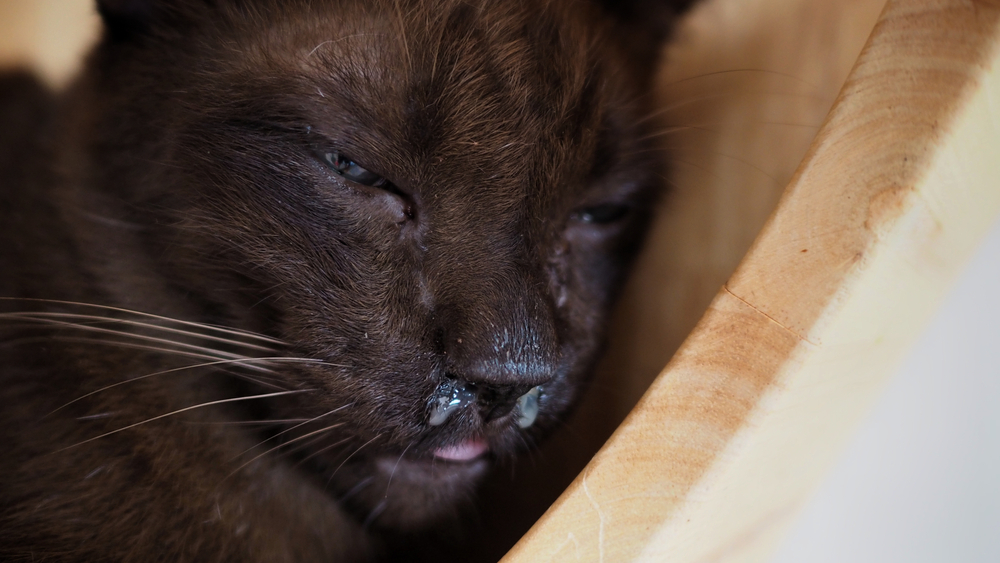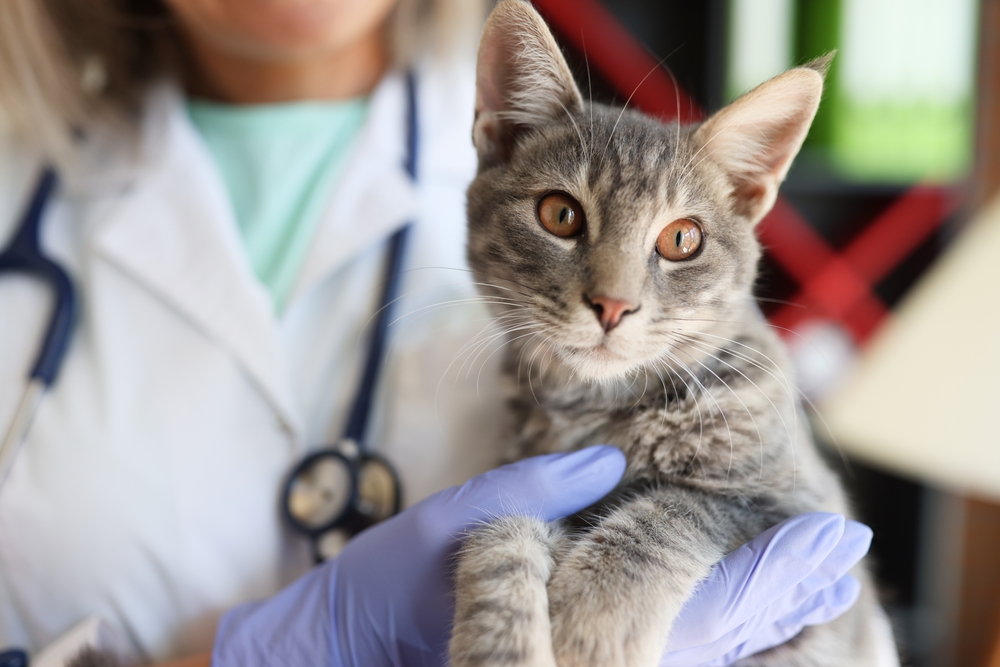Several serious viral diseases are a significant health concern for your feline friend. Being aware of these diseases and knowing how to protect your cat is important to keep your whiskered friend healthy and happy. Our Creature Comforts Veterinary Service team explains everything you need to know about five common feline viral diseases.
Feline leukemia (FeLV)
FeLV is a contagious viral disease that suppresses the cat’s immune system, commonly causes secondary infections, and frequently leads to cancer. Other important information about FeLV includes:
- Transmission — FeLV is shed in an infected cat’s saliva, blood, urine, and feces, and is transmitted via bite wounds, deep scratches, and close contact (e.g., sharing food and water bowls, using the same litter box, and mutual grooming). Kittens can also contract the disease from their mother either in the womb or when they nurse.
- Signs — Cats don’t typically exhibit signs in the initial stages, but as the infection inhibits their immune system, signs include weight loss, enlarged lymph nodes, oral irritation or ulcers, persistent or periodic fever or diarrhea, and chronic skin, upper respiratory, and urinary tract infections.
- Treatment — FeLV has no cure. Treatment involves supportive care and addressing secondary infections.
- Prevention — A vaccine is available and is recommended for cats at increased risk for FeLV. Also, your cat should be kept indoors and new cats tested before they are brought home.
Feline immunodeficiency virus (FIV)
FIV is a viral disease that attacks the cat’s immune system, increasing their susceptibility to infection and other diseases. Other important information you should know about FIV includes:
- Transmission — The most common FIV transmission method is through an infected cat’s bite. Mother cats can also pass FIV to their kittens during pregnancy or when nursing.
- Signs — Signs appear only when an affected cat has a secondary infection. Signs may include fever, lethargy, weight loss, inappetence, diarrhea, behavioral changes, swollen lymph nodes, and chronic or recurrent respiratory, skin, eye, and urinary tract infections.
- Treatment — FIV has no cure, and treatment involves addressing and preventing secondary infections.
- Prevention — The best protection against FIV is keeping your feline friend indoors and testing new cats before introducing them to your current cats.
Feline panleukopenia virus
Feline panleukopenia, also called feline distemper, is a highly contagious infectious disease caused by the feline parvovirus. The virus targets a cat’s rapidly dividing cells, such as in the bone marrow, intestine, skin, and developing fetus. Other important information you should know about feline panleukopenia includes:
- Transmission — Susceptible cats are infected when they contact an infected cat or virus-contaminated objects, such as food and water bowls. Mother cats can also pass the disease to their kittens in the womb. Kittens, immunocompromised cats, and pregnant felines are at highest risk for severe disease.
- Signs — Signs can range from mild to extreme and can include lethargy, fever, inappetence, weight loss, diarrhea, vomiting, and collapse. The virus can affect the brain formation in a kitten infected in the womb, resulting in incoordination and mild to severe muscle tremors.
- Treatment — Treatment involves aggressive fluid therapy to correct fluid losses and antibiotics, which may be prescribed to help control secondary bacterial infections.
- Prevention — Fortunately, a vaccine is available for feline panleukopenia and is a recommended core vaccine for cats.
Feline viral rhinotracheitis
Feline viral rhinotracheitis (FVR) is a prevalent infectious disease caused by feline herpesvirus type-1 (FHV-1). Other important information you should know about FVR includes:
- Transmission — Cats are infected by FVR through contact with an infected cat or virus-contaminated objects.
- Signs — Signs include sneezing, nasal congestion and discharge, and eye inflammation (i.e., conjunctivitis). Active infection typically lasts only about 10 to 20 days, but once a cat is infected, they remain carriers for life, and the virus may reactivate and signs recur when the cat is stressed or ill.
- Treatment — Treatment depends on disease signs and severity and may include topical eye medications, antibiotics to address secondary bacterial infections, nebulization, and appetite stimulants.
- Prevention — The FVR vaccine, which is a recommended core vaccine for cats, will not completely prevent infection if your cat is exposed to FHV-1. However, vaccination will significantly reduce disease severity and duration.
Feline calicivirus

Feline calicivirus is a major cause of upper respiratory infection in cats. At least 40 different calicivirus strains have been detected, all varying in severity. Other important information you should know about feline calicivirus includes:
- Transmission — Feline calicivirus is highly contagious and can be spread through direct contact with an infected cat or virus-contaminated objects, or by inhaling sneeze droplets.
- Signs — The most common signs include sneezing, nasal congestion and discharge, conjunctivitis, lethargy, fever, inappetence, and ulcers that affect the nose and mouth. In some cases, infection can result in joint inflammation, especially in young cats. Rarely, a highly pathogenic strain can cause severe problems, such as pneumonia, liver and pancreas inflammation, and bleeding from the nose and intestine.
- Treatment — Mild cases typically resolve without treatment. When treatment is necessary, fluid therapy, nutritional support, nebulisation, and antibiotics to address secondary infections are involved.
- Prevention — A vaccine for feline calicivirus is available, and is a recommended core vaccine for cats. Vaccination can’t completely prevent infection, but can significantly reduce disease severity and duration.
Keeping your cat indoors and ensuring their vaccines remain up to date are the most important protections against viral diseases for your feline friend. Contact our Creature Comforts Veterinary Service team to schedule your cat’s vaccine appointment.







Leave A Comment